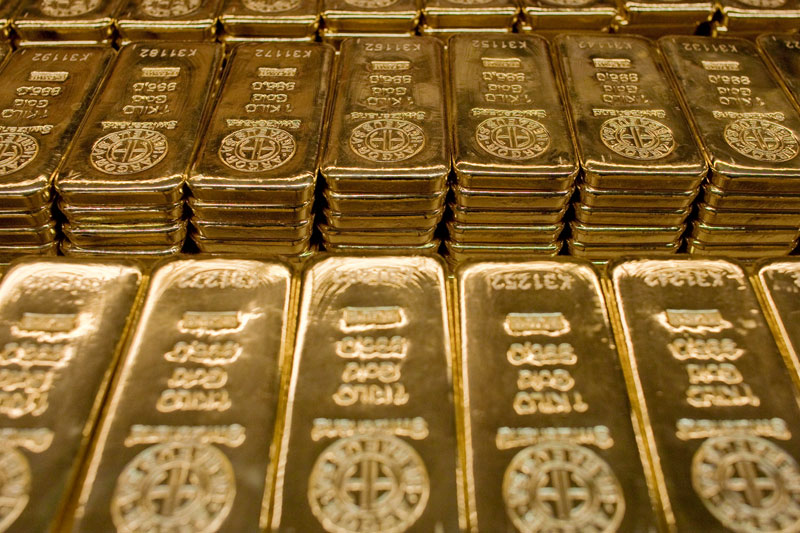Investing.com - Gold prices fell slightly in Asia on Thursday with an apparent deal to raise the U.S. debt ceiling until Dec. 15 in focus, though investors noted that President Trump's willingness to work with Democrats on the extension has riled hard-line Republican leaders.
Gold futures for December delivery on the Comex division of the New York Mercantile Exchange edged down 0.01% to $1,338.80 a troy ounce.
Overnight, gold prices fell on Wednesday, as U.S. political uncertainty eased after President Donald Trump agreed to raise the debt ceiling and extend government funding through Dec. 15.
Gold prices retreated from a one-year high pressured by a rebound in the dollar on news that President Donald Trump agreed on Wednesday that Congress should pass an extension of the U.S. debt limit and raise the debt ceiling, which caps how much money the U.S. government can borrow. The deal included working with the Democratic leadership as part of an effort to ensure funds are available to help rebuild after Hurricane Harvey.
Losses in gold, however, remained limited as expectations on additional U.S. rate increases faded, following comments from Federal Reserve officials urging the U.S. central bank to consider shelving its plan to hike rates later this year amid a slowdown in inflation.
Minneapolis Federal Reserve Bank President Neel Kashkari said the Federal Reserve’s recent interest rate hikes may be slowing inflation and inflicting “real harm” on U.S. economic growth.
"Maybe our rate hikes are actually doing real harm to the economy," said Kashkari.
Kashhkari comments came after Federal Reserve Governor Lael Brainard urged the U.S. central bank to delay raising interest rates until the trend of slowing inflation improved.
Gold is sensitive to moves lower in both bond yields and the U.S. dollar – A lower dollar makes gold cheaper for holders of foreign currency while a fall in U.S. rates, reduce the opportunity cost of holding non-yielding assets such as bullion.
